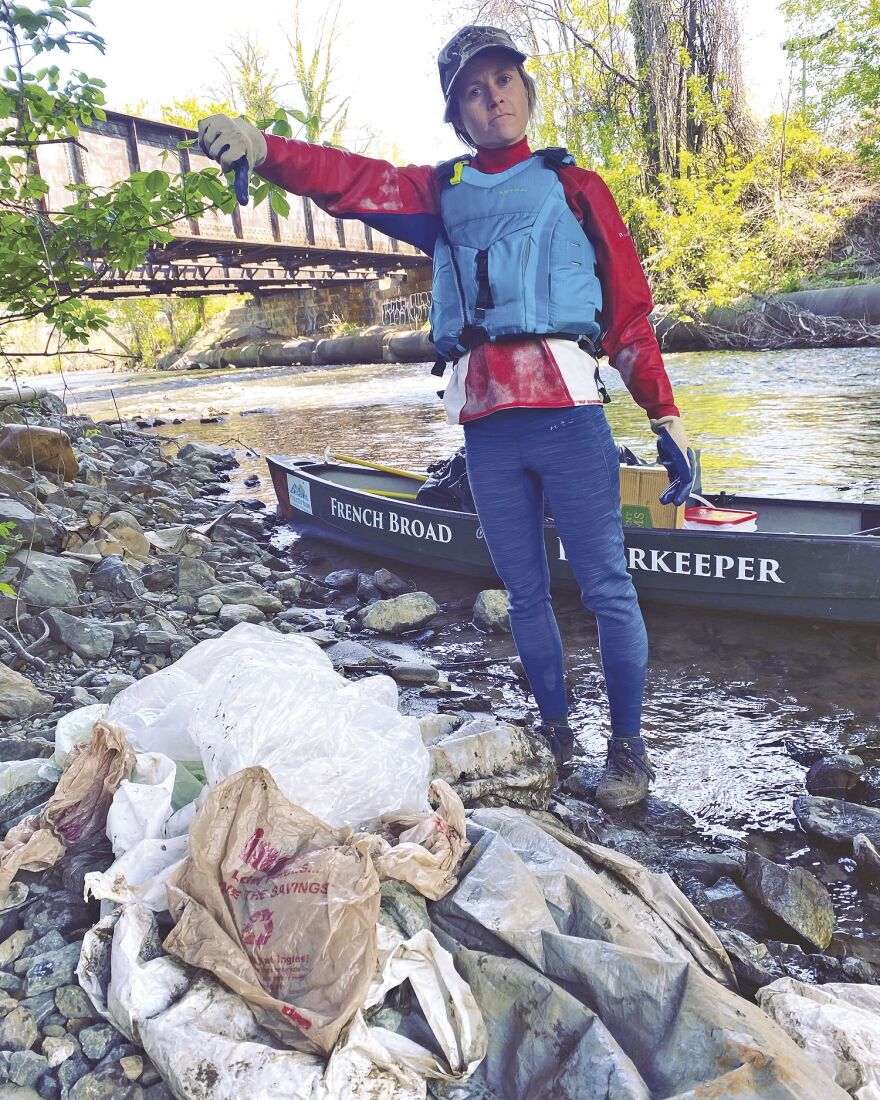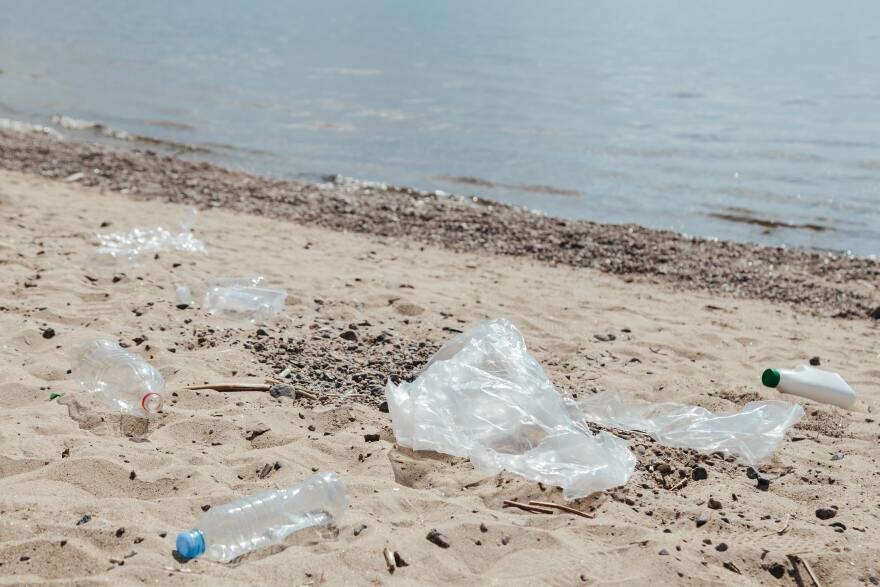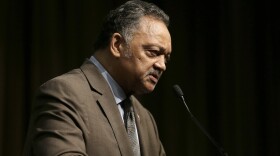A provision in the new state budget takes aim at local plastic bag bans and other efforts to reduce pollution.
The provision prohibits municipalities from restricting or regulating the use of 'auxiliary containers,' which includes bags, cups and packaging. It comes as cities, such as Asheville and Durham, consider bans or fees on items like single-use plastic grocery bags.
Environmental advocacy group MountainTrue has pushed for plastic bag bans in Buncombe County, and co-organizes cleanups to remove trash from the Swannanoa, French Broad and other rivers in the area.
“We're kind of sick and tired of doing it,” said Karim Olaechea, MountainTrue's Deputy Director of Strategy and Communications. “A lot of the trash that we see ending up in our rivers are plastic bags.”

Olaechea added that the group has sampled every watershed in its service area in western North Carolina.
“Every water sample that we've collected shows the presence of microplastics,” he said. “In the French Broad watershed, which is in Buncombe County, 40% of those microplastics are from microfilms. That's what happens when things like plastic grocery bags or food wrappers start to break down over time.”
While the effects of ingesting microplastics are only beginning to be understood, Southern Environmental Law Center attorney Susannah Knox described the research so far as “disturbing.”
“There are a number of different chemicals that make up different types of plastic,” Knox said. “Many of them have been tied to human health risks, such as certain types of cancers, reproductive issues, and even autoimmune diseases and digestive problems.”
The Southern Environmental Law Center has been working with MountainTrue to advocate for local ordinances, like one in Buncombe County that would have banned single-use plastic grocery bags, put a 10-cent fee on paper bags, and banned Styrofoam containers.
But Knox said the provision in the new budget will prevent such efforts, adding that the language in the provision is overly broad.
“In this attempt to stop local governments from taking action on plastic bags, they've cast a really wide net and prevented local governments from any type of regulation of any of those items,” Knox said, referring to the budget’s definition of auxiliary containers. “That's really going to hamper local governments and their ability to tackle the solid waste crisis.”

The North Carolina Retail Merchants Association advocated for the provision’s inclusion in the budget, arguing that consumer education—not plastic bans or taxes—is the best path toward a clean environment.
“This provision ensures consistency throughout the state instead of a patchwork of rules city by city and county by county,” NCRMA said in an email statement.
The NCRMA claims to represent retailers and advocate for their interests. A NCRMA spokesperson declined to list which members of the association expressed support for such a provision.
In light of the new provision, Knox said the SELC will be exploring legal options, while Olaechea at MountainTrue said that advocacy groups are forming new strategies.
“Our community wants action on plastic pollution,” Olaechea said. “We're gonna keep fighting for it. And we're gonna voice those demands and those desires to the General Assembly. This fight's not over yet.”
A MountainTrue survey of Asheville businesses found widespread support for an ordinance that bans single-use plastic bags.







